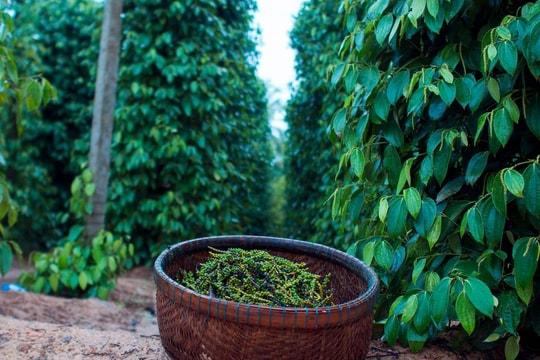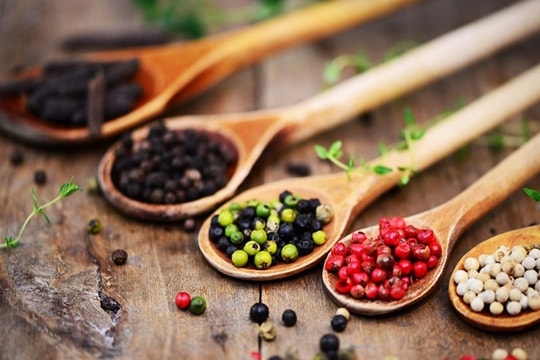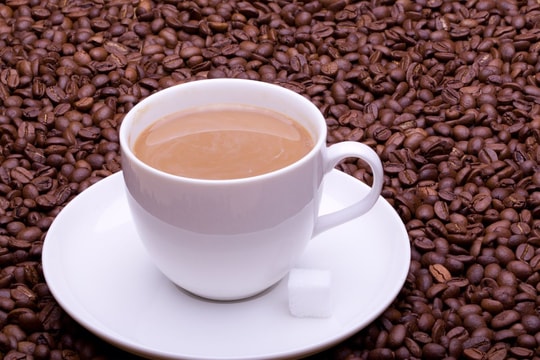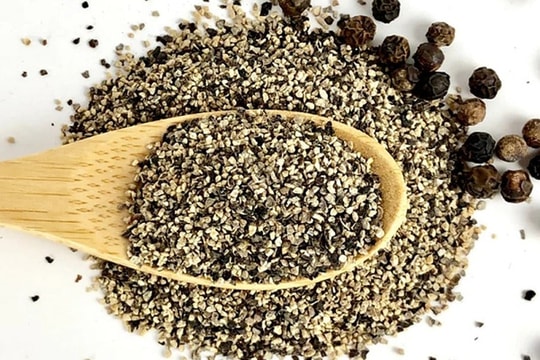Nghe An seeks direction for agricultural products during the epidemic season
(Baonghean) - The Covid-19 pandemic raging in China has had a significant impact on the export of agricultural products from Vietnam to the world's most populous market. In the midst of difficulties, businesses, producers and distributors in Nghe An are finding their own ways to find a way forward for agricultural products.
The market is "slow"
If every year, after Tet is the time when goods are sold busily, this year, after Tet, the shrimp products of the families of Dien Chau Shrimp Production and Trading Association have fallen into a state of stagnation. Mr. Le Minh Tuan - Chairman of the association shared: The sale of goods via unofficial channels to China has completely stopped since the 5th day of Tet.
Meanwhile, people returning home for Tet and tourists buying gifts are also much less because people limit their travel. If normally like every year, January and February are the months of strongest production and consumption, on average, members of the association consume 3 tons of shrimp, equivalent to 30 tons of fresh shrimp/month, of which about 30% is exported, but now it has almost stopped.
 |
| Shrimp production facility in Dien Chau seeks to sell online. Photo: Phu Huong |
As for Mr. Tuan's family, the family's 50-ton freezer is almost full, while normally it only holds about 20 tons. The decrease in purchasing power has also led to a decrease in prices. Before Tet, 1 kg of shrimp cost 550,000 - 600,000 VND, but now it is only 450,000 - 500,000 VND/kg. The price of raw shrimp has also decreased from 45,000 - 50,000 VND/kg to 35,000 - 40,000 VND/kg.
Every year, 2,000 tons of peanut and sesame products are exported, mainly to the Chinese and Thai markets. Mr. Pham Ngoc Thang - Director of a peanut export business in Dien Chau district said: The Chinese market is an extremely unstable market. Currently, Dien Chau peanuts have not yet reached the harvest season, but if the epidemic lasts and is not controlled, it will greatly affect consumption because the number of products exported to China through unofficial channels accounts for up to 50% of the consumed output.
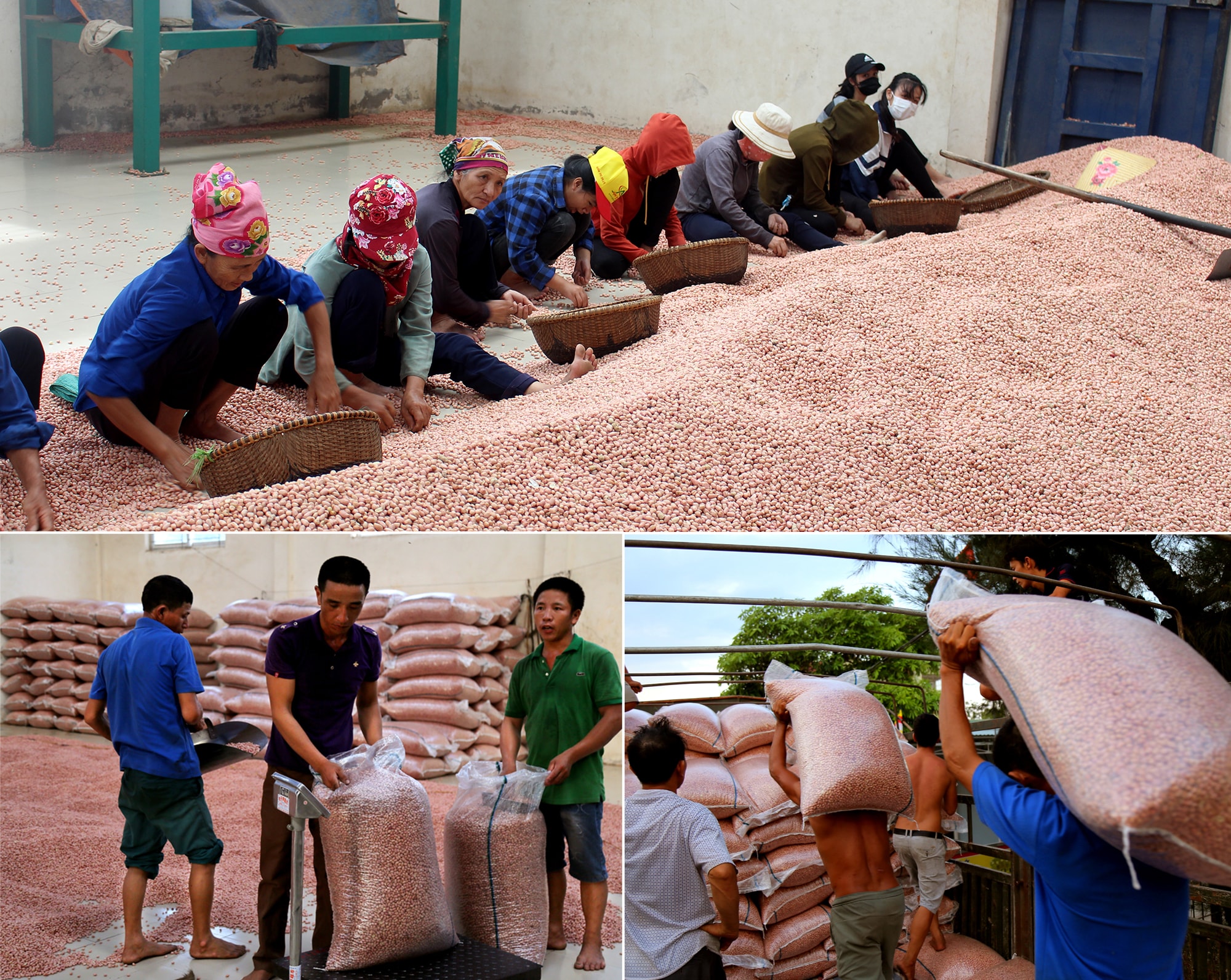 |
| Dien Chau peanut products still depend mainly on the Chinese market. Photo: Phu Huong - Canh Yen |
Find a way
In the face of common difficulties, in their own specific ways, businesses, distributors and producers in Nghe An are all trying to find a way forward for Vietnamese agricultural products. “We reduce selling prices, accept lower profits; increase marketing, open more sales channels such as online sales, retail sales ...”, said Mr. Le Minh Tuan - Chairman of Dien Chau Shrimp Production and Trading Association.
If it is difficult to export to China, the company will expand its domestic consumption network, bringing products to Ho Chi Minh City, Hanoi and other provinces and cities. Because if it exports to other "difficult" markets, it will be very difficult to compete because the technology and equipment to produce refined products do not meet the requirements and cannot keep up with other countries. "From 2018 to now, we have cooperated with TH to supply 100 tons of ground peanuts/year as raw materials for ice cream and yogurt production. Packaged Nghe An lotus peanut products for consumption in supermarkets in and outside the province are about 50 - 70 tons/year", Mr. Pham Ngoc Thang shared.
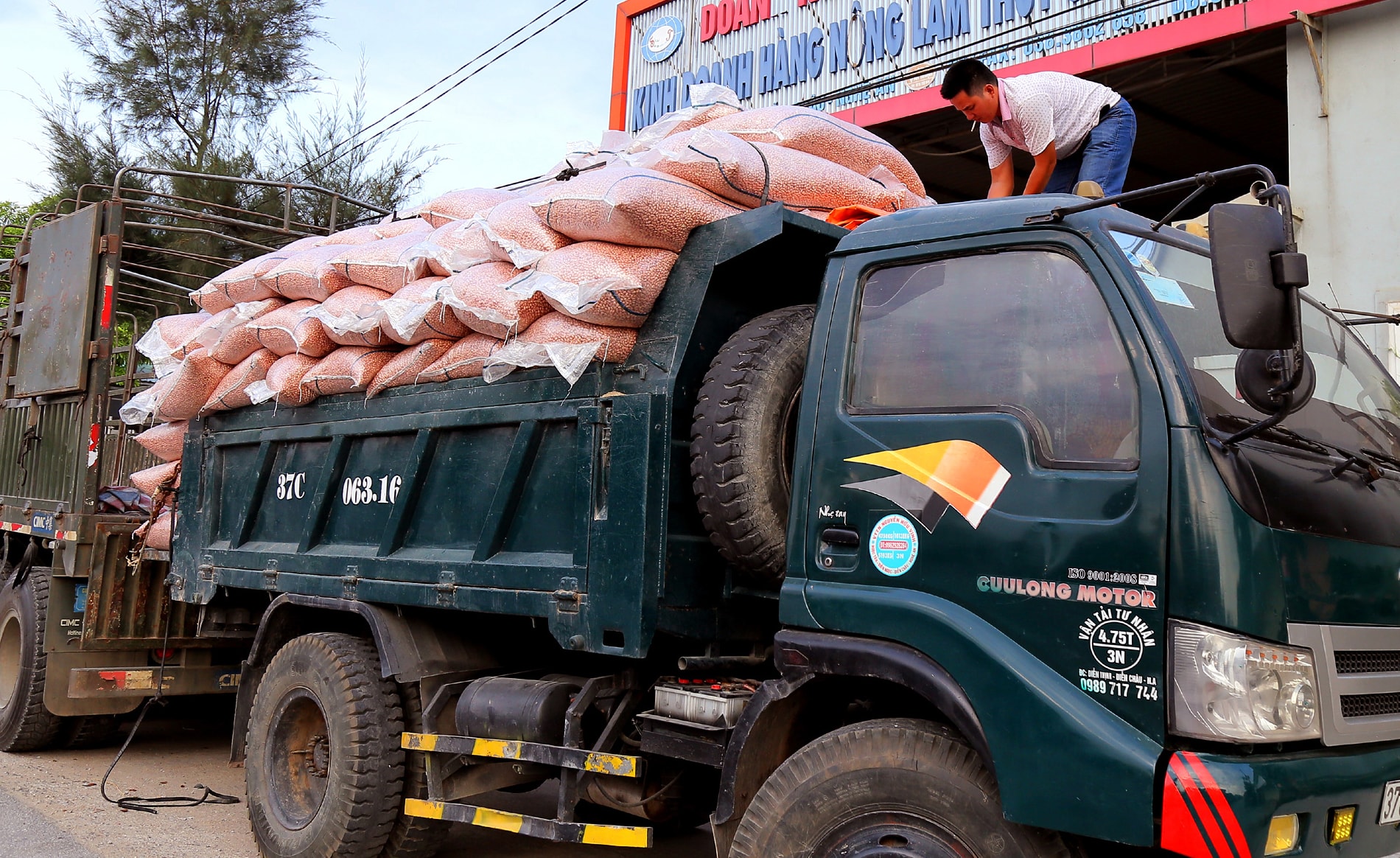 |
| Nghe An lotus peanut products are consumed in supermarkets inside and outside the province at about 50 - 70 tons/year. Photo: Canh Yen |
Each year, about 30 tons of sugar are sold, according to Mr. Nguyen Ba Quy - Deputy Director of Song Con Sugarcane Joint Stock Company: "There are not many fluctuations yet, but if the epidemic lasts and consumption is affected, we will continue to have solutions to expand domestic market share such as strengthening product marketing through information channels, improving service...".
According to Mr. Nguyen Van De - Director of the Department of Agriculture and Rural Development, China is an important consumer market for Nghe An agricultural products. The decrease in purchasing power of this market will affect us from both angles. Not only will it directly affect agricultural products exported to the Chinese market, but it will also have an indirect impact when goods from countries with large exports to China are now stagnant due to the epidemic and will seek other markets and affect Vietnam's exports.
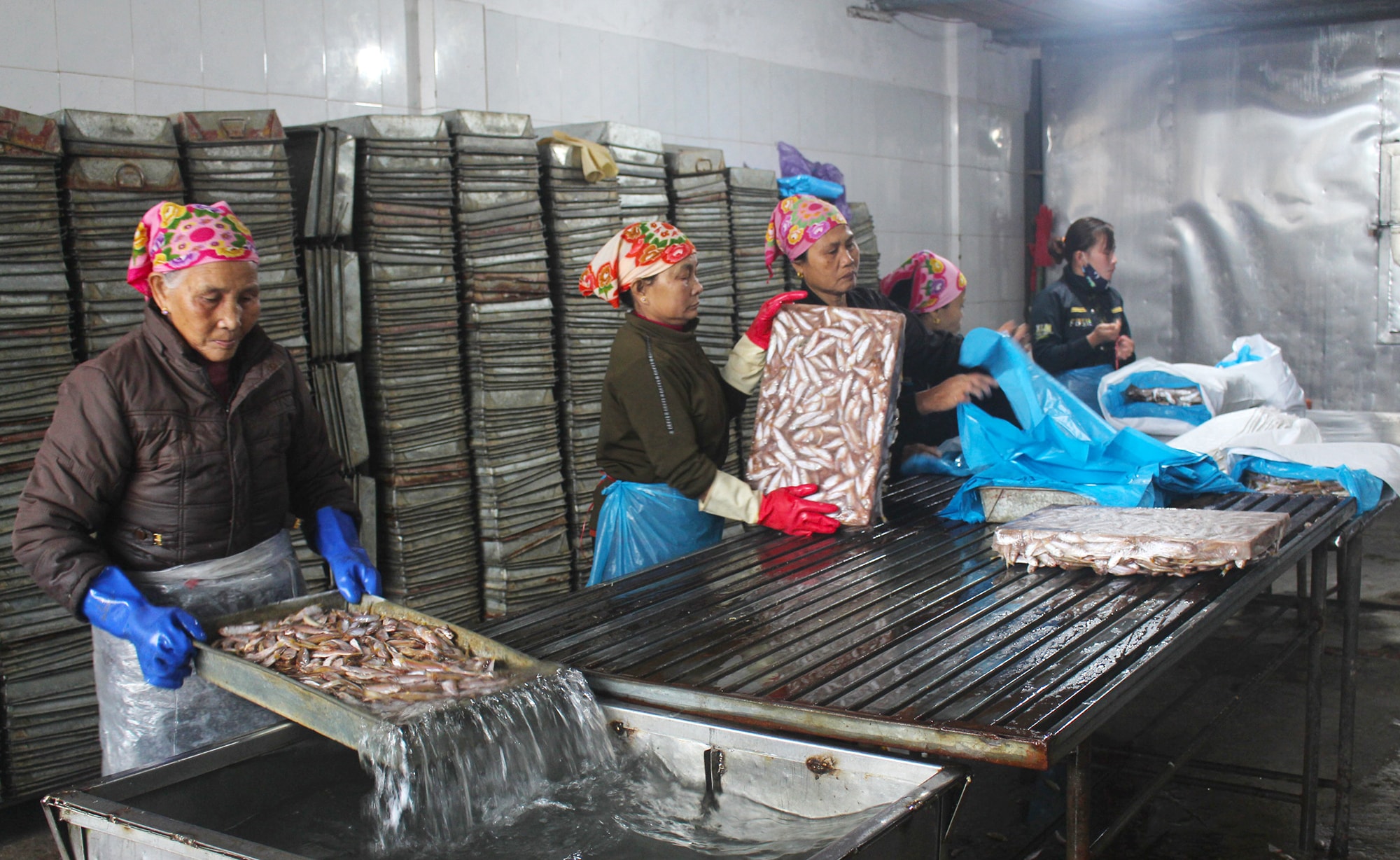 |
| Cold storage facilities are increasing the freezing of unsold products. Photo: Phu Huong |
“In the immediate future, we are directing businesses and producers to invest in technology and process more “refined” products for consumption and export to other markets. Strengthen and utilize reserve and freezing warehouses, encourage traders to purchase remaining agricultural and aquatic products for preservation and storage in cold storage, and gradually consume them, while promoting domestic consumption and seeking more official consumption markets. In addition, we also encourage units to bring agricultural products and fresh fruits to wholesale markets, supermarkets, and shopping centers for sale and promote consumption in restaurants, hotels, and tourist areas.
In the long term, direct and guide people and production facilities to be more aware of organizing production of goods according to market demand and ensuring production processes according to VietGAP standards, clean production to improve the competitiveness of agricultural products. At the same time, build and adjust production and consumption plans reasonably, suitable to the current situation so as not to depend on one market and to be able to conquer demanding markets.

Worried about difficulties exporting agricultural products to China due to corona virus
The Import-Export Department (Ministry of Industry and Trade) warned that businesses exporting agricultural products to China need to soon change delivery methods.


